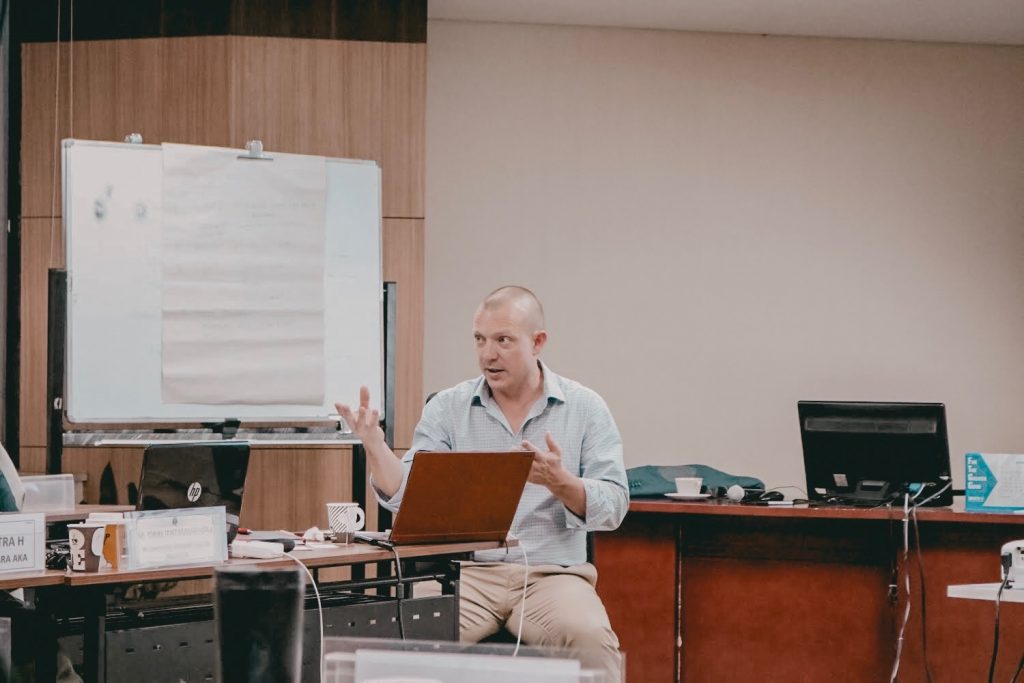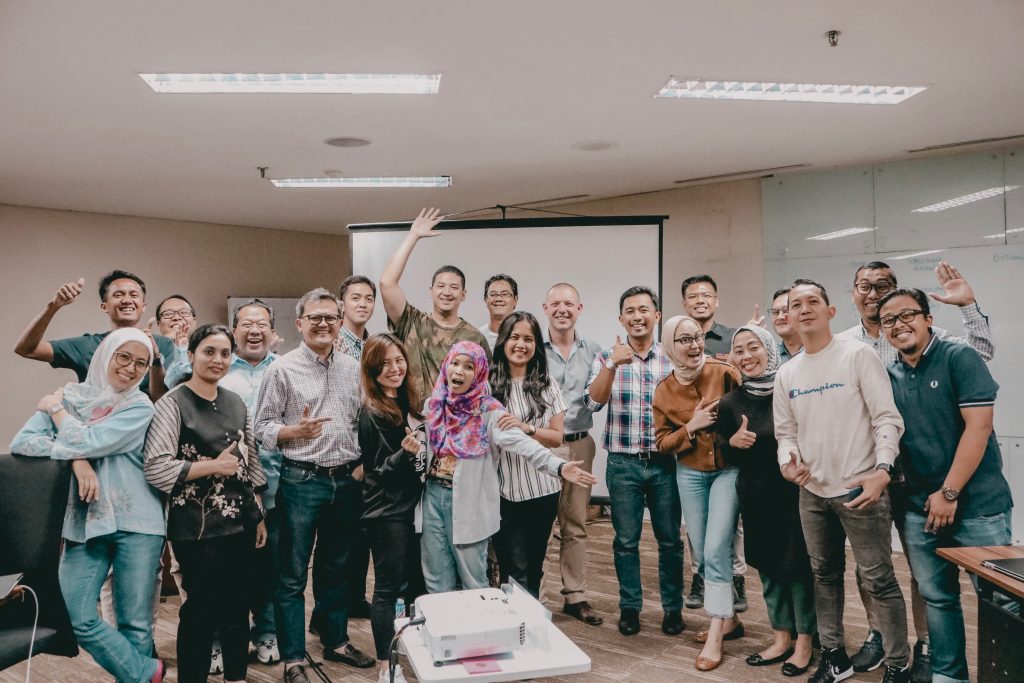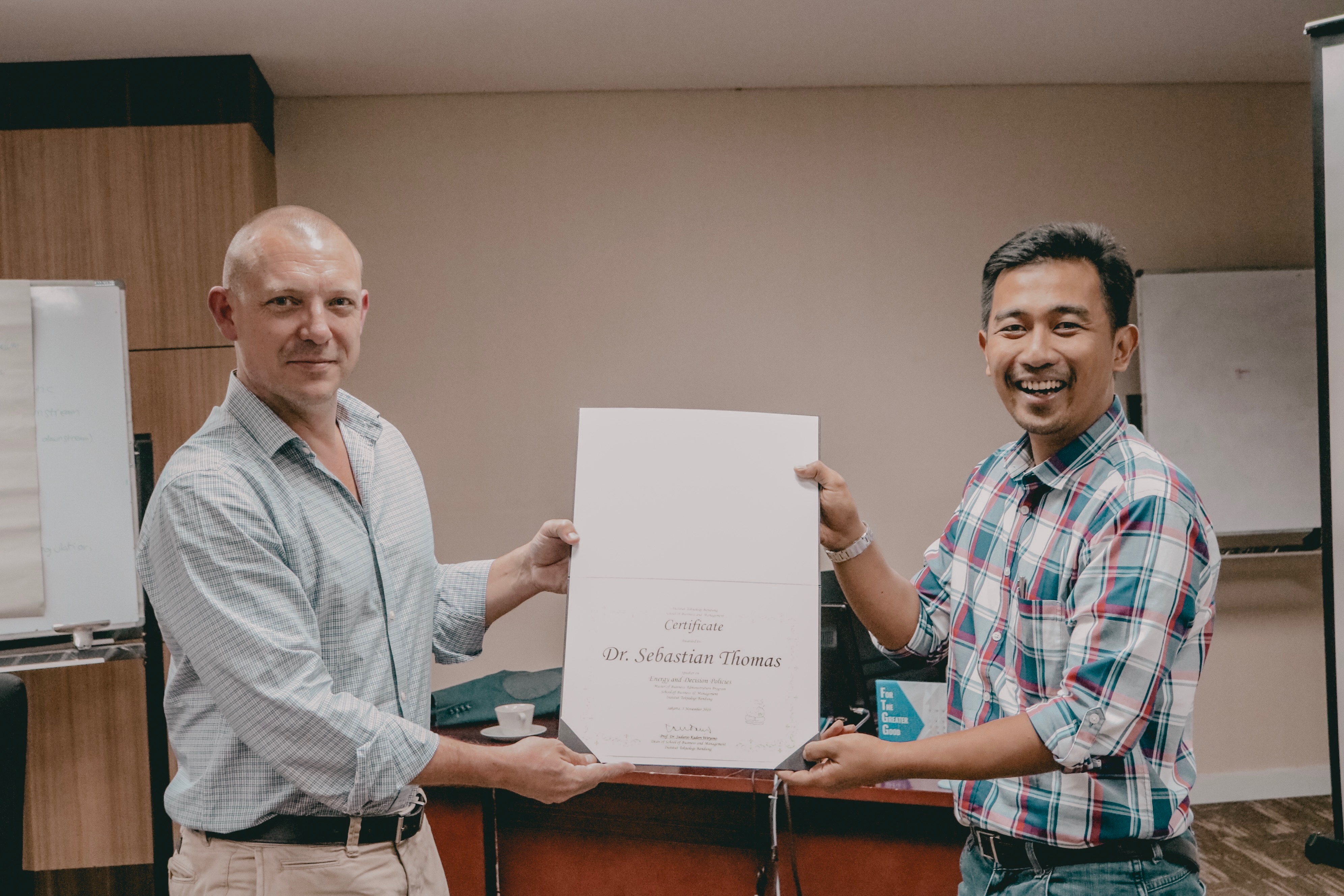Written by Dr Yudo Anggoro
Opened by Deputy Director for Jakarta campus Dr. Yudo Anggoro, Dr. Sebastian Thomas from the University of Melbourne began his lecture by explaining the energy challenge in recent years. He explained that our dependence on fossil fuels as the primary energy sources was actually because of the fundamental superiorities that they had over their alternatives, including their abundance, their relative ease of extraction and processing, and their energy density.
“As a result, fossil fuels have been major drivers of industrialization and urbanization, and therefore a major determinant of how we live and our standard of living,” as told by Dr. Thomas at the ENEMBA class in Jakarta (3/11/2019).
Speaking of energy sustainability, Dr. Thomas explained the three spheres of sustainability which were environment, social, and economic. These three aspects should be balanced in order to achieve sustainability vision. In reality, he said, this balancing act was difficult to maintain.
“Economic is dealing with profit, cost-saving, and economic growth principles. Social discusses issues such as standard of living, education, and equal opportunity. Environmental aspect puts concern on pollution prevention, environmental management, and natural resource use. Our behavior has a tendency to focus on one certain aspect, especially the economic one, while neglecting other factors of sustainability,” he added.
Closing his lecture, Dr. Thomas concluded that “Energy transition using more renewables and less fossil fuels is inevitable. Some initiatives of using renewables have been successfully used in other countries, and Indonesia could follow the green initiative as well. The use of wind and solar PV is just an example how to start this energy transition in Indonesia”.
The Energy MBA in Management (ENEMBA) is a degree program specifically designed for practitioners, policy makers, and scholars in energy sector in Indonesia. Started in 2015, the program has attracted the interests of students who work at energy companies such as Pertamina, PGN, and Aneka Tambang, and those who work at government institutions such as Ministry of Energy and Mineral Resources.






